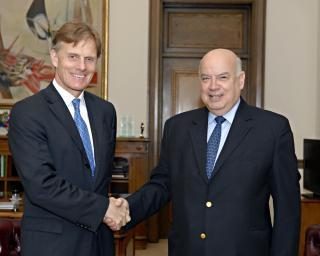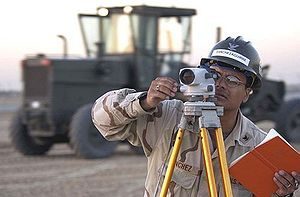 A bank is a financial institution that, on the one hand, manages the money that its clients leave them in custody and, on the other hand, uses it to lend it to other individuals or companies by applying an interest , which consists of one of the various ways it has of doing business and increasing the money in its coffers.
A bank is a financial institution that, on the one hand, manages the money that its clients leave them in custody and, on the other hand, uses it to lend it to other individuals or companies by applying an interest , which consists of one of the various ways it has of doing business and increasing the money in its coffers.
Meanwhile, it is called "banking" or financial system (a term so commented on and in vogue these days as a result of the runs and instability that occurred after the crisis that arose in the United States in 2008 and its sustained impact in Europe in the framework of the questioning of the "welfare state") to the set of banks that make up the economy of a given country.
Regarding the origins of banks, since man exists as a social being who works and acquires food and goods to survive, there have been exchanges of the latter or of coins, as appropriate and according to the time, of course. However, it will not be until approximately the 15th century that the first bank will be founded, more precisely it will be in 1406 in Genoa, Italy, baptized the Banco di San Giorgio. It is worth noting that the ancient European empires had circulation coins made mainly of noble metals, but paper money as we know it today is one of the many Asian inventions that were made known in the West after Marco Polo's trips to the China of Mongolian times.
exist two types of banking operations, passive and active. The passives, also known in the internal language as those of catchment, are those through which the bank receives or collects money directly from people and that is made real for the bank through bank deposits. These movements include operations that are carried out in a tangible or virtual way in checking accounts, savings accounts and fixed terms. The first two are characterized by their mobility, while the last must wait for the expiration date of the term to get the money. This last tool provides the user or client with the possibility of having a certain interest on the original capital, which is usually higher depending on the time in which each individual leaves those funds under the bank's structure.
On the other hand, active or placement operations allow to locate that money that comes from the liabilities again in circulation in the economy, through loans to people or companies as we previously consigned. This item includes both so-called personal loans and those aimed at financing a property, known as mortgage loans.
Currently and as a consequence of the needs of this globalized and consumer society in which we live, banks have been forced to expand their services and thus also expand their income. They sell foreign currencies, trade stocks, bonds, offer credit cards with important benefits and prizes to those who consume the most, among others.. Likewise, they have diversified their work within the framework of the complex modern financial system, which is why the banking client can participate in some operations previously reserved for specialists. Among these alternatives, mutual funds and stock market operations stand out, recommended for private clients who seek to assume the cost of greater financial risk with the possibility of achieving
higher revenue.
In addition, the activities of banks modern have reached the digital plane. Apart from the innovation that ATMs and self-service terminals represented in past decades, electronic banking systems (homebanking) have become resources that allow users to save time and avoid delays arising from the multiple tasks performed by employees of these institutions. Through digital platforms, clients from all over the world can carry out procedures, work with their accounts, buy foreign currency, renew or modify their fixed-term operations, transfer funds, pay taxes and services and perform various tasks from the simple scope of a home computer connected to the Internet.









